If we still want cinema spaces to exist, however they might look, they can and will survive, writes Colin Farquhar, more than three months on from the closure of Belmont Filmhouse.
October 6. That was the day I found myself sitting in Belmont Filmhouse’s Screen 3, being told that Centre for the Moving Image, its parent company, was entering administration.
The cinema wouldn’t open its doors that day, and the staff were being made redundant with immediate effect.
I meandered for another month, working for the administrator, until October 31. I tried to be professional, and engaged, while helping them close down a cinema I’d worked in for almost 15 years. December 4 would have brought that anniversary. On November 1, I received my last payslip, and my P45.
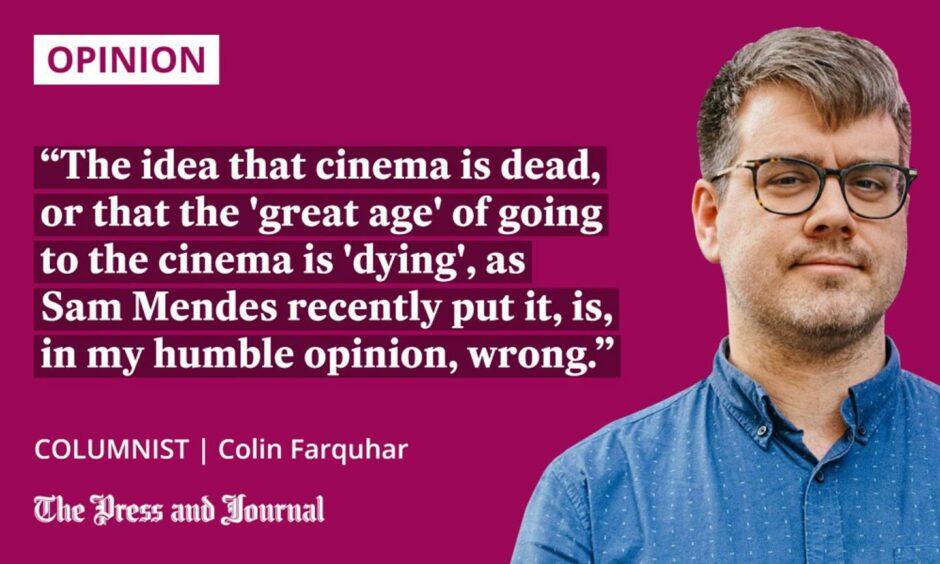
Since then, life has been busy. I’ve moved. I’ve begun driving lessons. I’ve had two short breaks to London. I’ve started two new jobs, and I’ve had my first Christmas with a new partner. Life has been very different, but very good, even with a Belmont-shaped hole in the middle.
I’ve also been able to keep working, for now at least, on the passions that are closest to my heart – cinema and the arts.
I’ve always been very blessed that, for most of my adult life, I’ve been able to work within organisations that I love, and that I believe to do good work for others, and for their communities. Continuing that has been important to me.
There are reasons to be cheerful
I walked through our city centre last week. On Belmont Street, I passed Belmont Cinema’s front doors for the first time in 2023. Still closed for now, I hope I’ll see them open again, but the pandemic, shifting habits and the ensuing economic slowdown have been hard on cinemas, quite uniquely, I think.
Across the sector, cinemas have seen mixed results. A few arthouses and indies have roared back to life; others, Belmont Filmhouse included, have floundered under low incomes, and increased costs.
There are reasons to be cheerful, though. Despite the hardship, UK cinema attendances are recovering.
Box office isn’t where it was pre-pandemic, but it wasn’t that far away in 2022, with Avatar: The Way of Water and Top Gun: Maverick drawing the big bucks. And 2023 will be better.
Cinema enables so much
I’ve been able to work with community cinemas in the months that I’ve been apart from the Belmont. Regional Screen Scotland, which I’m working with over the next few months, supports a huge network of them across the country, as well as running the Screen Machine, a mobile cinema which tours the Highlands and Islands, Argyll and Bute and, sometimes, Aberdeenshire.
It gives me the chance to see the direct impact which these screens, and cinemas (of all shapes and sizes) have on people. The films and the spaces and the social occasions around them give them a lot of joy. Cinema enables so much, and will – must – continue to.
I’ve also been given the opportunity to take charge of two short film programmes in Aberdeen, one for the Fittie Film Club, and one for Granite Noir festival, which returns in late February. That gives me hope that cinema can survive outside major box office blockbusters, which are currently driving most of the admissions.
Things have changed – but the Belmont might eventually be back
Back on Belmont Street, I wandered further down the road, after a momentary pause at the cinema’s front door. I heard a woman telling her friend that “just a little further along the street, there was a cinema.
I have to finally admit that streaming services have fundamentally changed the landscape
“It’s really sad,” she said, after a pause. It is, but if you keep telling people you miss it, it might be back.
The film programme for Granite Noir, by nature, requires a focus on the genres of murder and mystery, which have really found their home on streaming over the past few years. At the moment, these types of films are being muscled out in cinemas, as multiplexes put the blockbuster offerings in front of as many people as possible. But who wouldn’t want to see a film like Vertigo in a cinema setting?
FITTIE FILM CLUB is BACK! Friday the 27th Jan and watch Limbo. Please book your seat with Martin on producer@openroadltd.co.uk. We provide the popcorn, you bring your tipple of choice! Please arrive at 6.30 for 7:00pm start! @culturecolscot @creativescots pic.twitter.com/iDUjT5sCYt
— Open Road (@openroadltd) January 13, 2023
At the Fittie Film Club, our first film will be Limbo, on January 27. A comedy about Syrian New Scots, showing two days after Burns Night, it was actually the first film with a live, in-person, director Q&A shown at Belmont Filmhouse following Covid lockdown.
Director Ben Sharrock arrived slightly weary and sunburned after a hot day in Inverness. He was charming, as is the film, which I had watched the morning of the screening, alone, in Belmont’s Screen 1. To be able to stand in front of a screen and introduce it once again will be a pleasure.
The idea that cinema is dead, or that the “great age” of going to the cinema is “dying”, as Sam Mendes recently put it, is, in my humble opinion, wrong. But, it might be changed, at least for now.
Adult-orientated dramas are struggling to find their theatrical audience. I have to finally admit that streaming services have fundamentally changed the landscape. But cinema will endure.
Colin Farquhar is former head of cinema operations for Belmont Filmhouse in Aberdeen

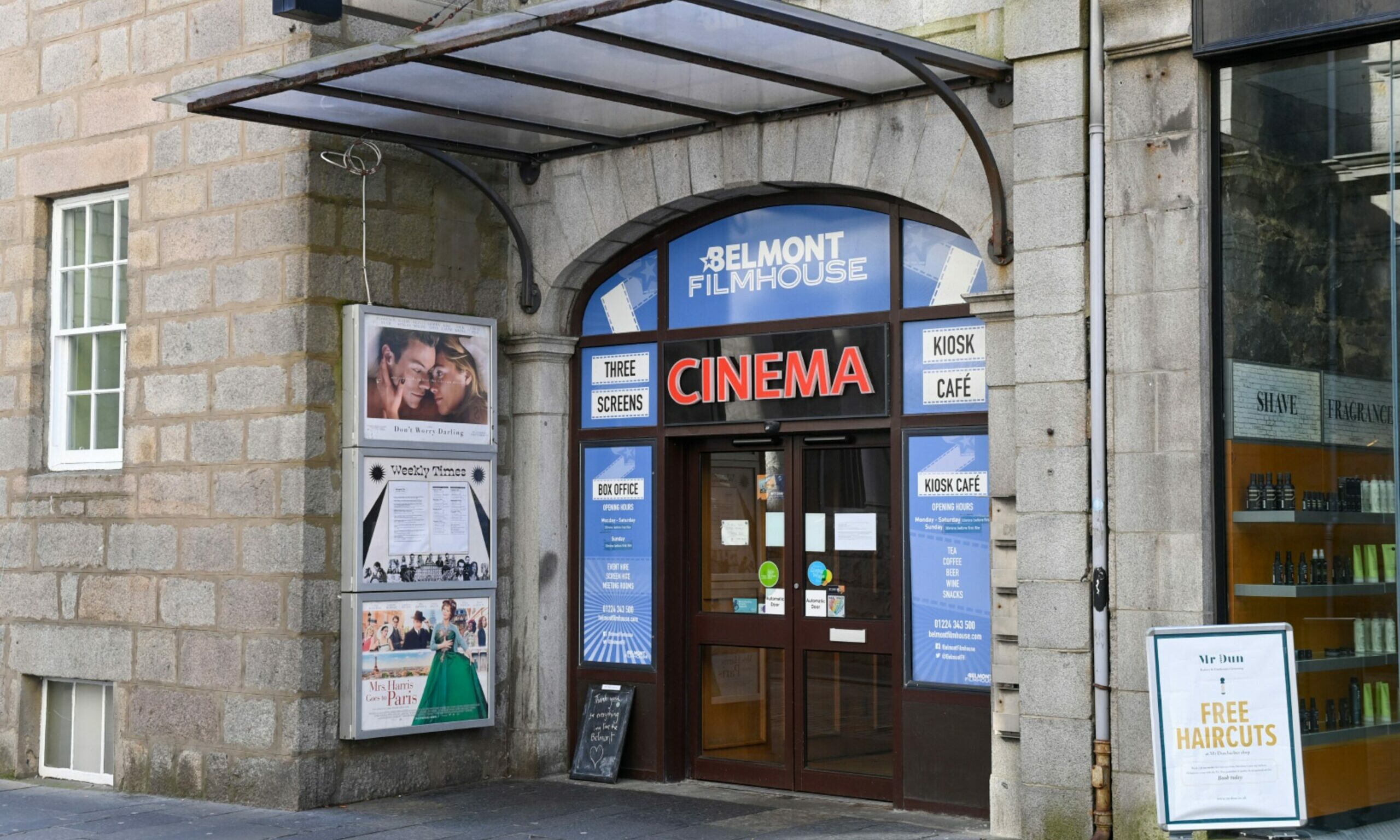


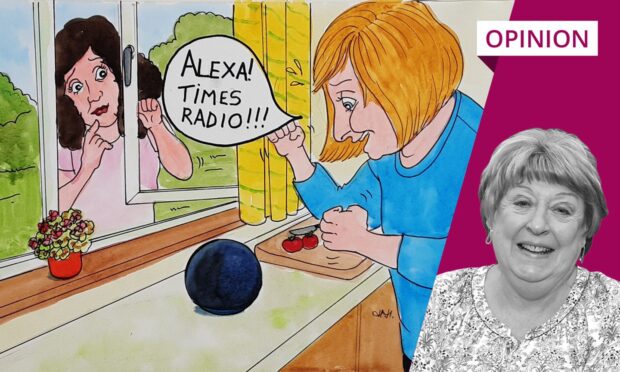
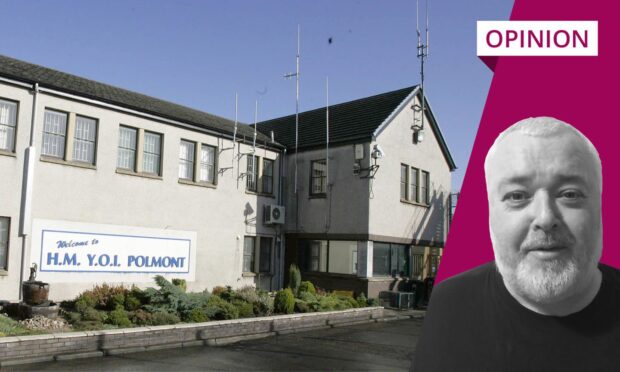
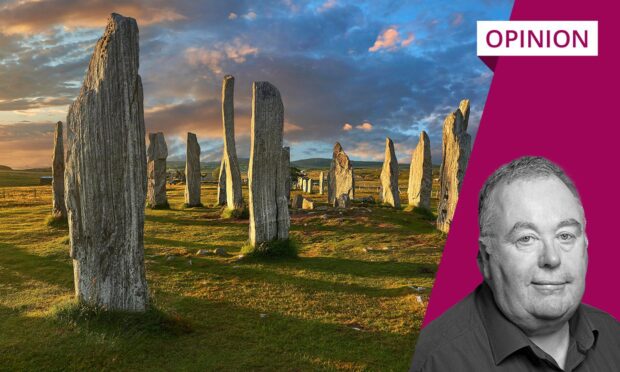




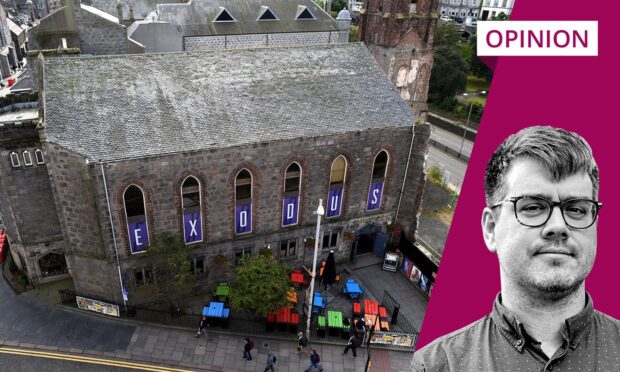
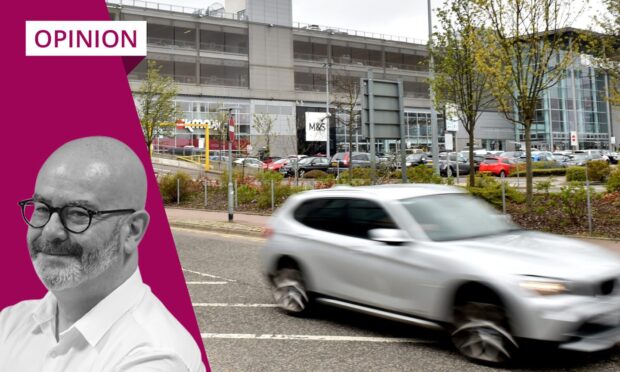
Conversation